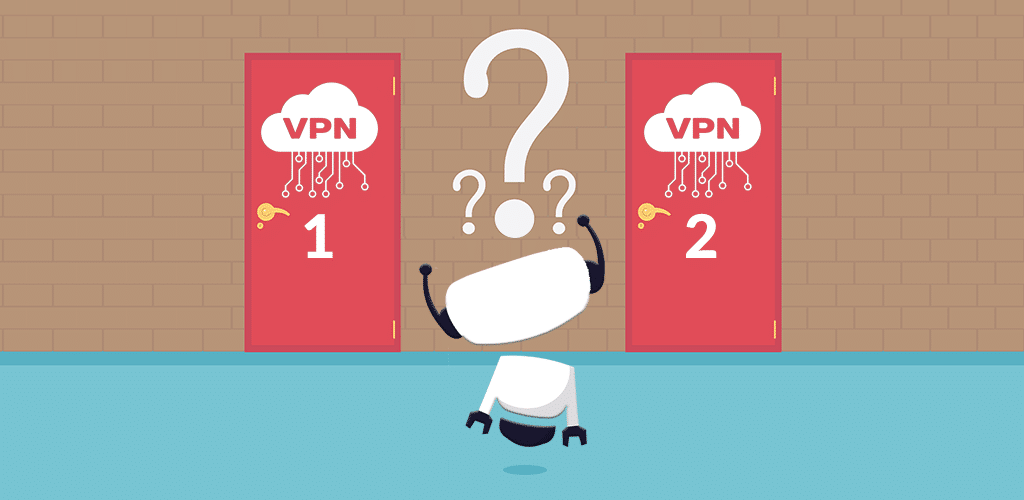November 14, 2019
How to Choose a VPN That's Right For You
Posted by Rhiannon

- Assess your needs
- Determine compatible devices
- Check geographic availability
- Compare prices
- Test their customer service
- Consider user-friendliness
- Go with no leaks, no logs services
Assess Your Needs
The services provided by most virtual private networks overlap in many ways. However, some VPNs are better at fulfilling certain needs than others. To choose the right service for you, ask yourself what you require from a virtual private network. For example, if you want to access Netflix from another country, choose a VPN that supports a Netflix-enabled server. Other users may require VPNs with fast speeds, multi-device support, or a variety of server locations. Knowing what you require from a virtual private network helps narrow down the choices presented to you.
Determine Compatible Devices
The next step VPN-seekers must take is to research the devices with which potential services are compatible. If you want a VPN specifically for browsing the web on your desktop computer but a service only offers a mobile app, don’t waste your money on it. While most VPNs offer multi-device support, there are some that are more versatile than others.
Choose a VPN Based on Geographic Availability
Just as some VPNs aren’t compatible with all devices, there are also some that aren’t compatible with all regions of the world. If you live in an area with a small population, or a country affected by censorship, you may find that your range of VPN choice is somewhat limited. For example, China’s strict censorship laws make most VPNs illegal. Another thing to research before committing to a service is the distribution of their servers. If you have a need to connect to a server in a specific region but the VPN doesn’t have any in that location, your needs won’t be met.
Compare Prices
It may be a taboo topic at Thanksgiving dinner but this isn’t Thanksgiving so let’s talk about money. VPN services run the gamut in terms of pricing, ranging from free to prohibitively expensive. Let’s discuss the free options first.
While you can choose a VPN that doesn’t cost you any money, the majority of these services are sub-par and not very likely to meet your needs or protect your privacy. Moving on to paid options, you have a wider-range of effective options to choose from. However, prices can vary widely. In many cases, VPN services offer tiered pricing, which forces monthly users to pay a higher fee than that paid by users who choose a longer subscription period (ie. one year, three years, etc.).
Assess your own financial situation and need for a VPN before choosing your subscription period: many first time users benefit from paying the higher monthly-fee for a couple of months to test out a service before deciding to commit to a longer term. In addition, many reputable organizations also offer a 30-day money-back guarantee because they understand their service may not meet the personal needs of every user.
Test Their Customer Service
Another show of a VPN’s quality (or lack thereof) can be seen through their customer service. A virtual private network that has an unreachable customer service team is less likely to continuously provide you with reliable service moving forward. However, a service that quickly connects with you to address issues or questions you have is more trustworthy and often more deserving of your support in return for theirs.
Consider User-Friendliness
If you’re considering committing long-term to a virtual private network, you don’t want your relationship with the service to be filled with frustration, confusion, and endless customer service chats (even if they answer promptly). So, before you choose a VPN, do some research into how easy it is to work with its interface. A quick read of some of its top reviews should reveal its worst pain points and may even uncover pros and cons that you hadn’t considered before.
Go With No Leaks, No Logs Services
As multi-purpose as most VPNs are today, they were originally designed for a single purpose: to increase a user’s internet privacy. With that in mind, you should opt for a service that guarantees no leaks and no logs. “No leaks” means that their encryption is highly secure and completely prevents prying eyes from seeing your online activities. Meanwhile, “no logs” means that the service doesn’t store any details about your activity, thus keeping your privacy wholly intact. While it would be great to think that all VPNs automatically guarantee these qualities in their services, that simply isn’t the case, so it’s very important that you thoroughly research your choice before committing to it.
VPNs are an important tool when it comes to protecting online privacy and safety. Picking the right one is just as important, and we recommend HotBot VPN.
]]>Posted by Rhiannon
More Blog Posts
February 14, 2023
How the Investigatory Powers Act Impacts Citizen Privacy
In 2016, the United Kingdom passed the Investigatory Powers Act or IP Act, into law. This act empowered the government and related agencies to access and collect citizen data, without consent. Critics immediately slammed the new law. The media dubbed it the “Snoopers’ Charter.” Meanwhile, Edward Snowden described the act as “the most extreme surveillance […] Read moreFebruary 14, 2023
Review: qBittorrent Torrent Client
If you plan on torrenting files, you need a client with which to do so. There are dozens on the market, some paid, some free. Others are feature-heavy while some have just the basics. A few are recent additions to the market while others have been around nearly as long as torrenting. The qBittorrent torrent […] Read moreFebruary 14, 2023

